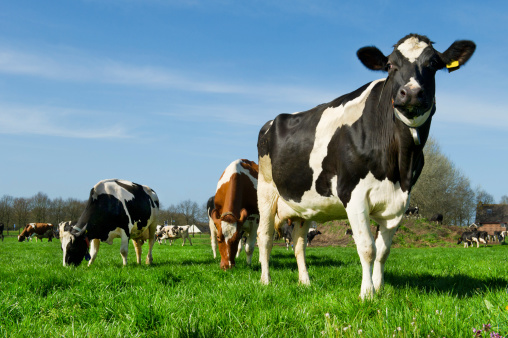If they don’t, farms in Surrey, Kent, West Sussex and the Isle of Wight will be left out of a service which they could need as much as anyone else. “If you are a farmer in Surrey with a herd breakdown, you are less likely to know what will happen,” said James Osman, NFU county adviser for East Sussex, West Sussex and the Isle of Wight. “That is why we are pushing for the service to cover all areas, not just the edge and high risk ones.”
In July 2013, DEFRA launched a public consultation on a draft strategy for achieving TB free status for England within 25 years.
As part of this exercise, DEFRA introduced further control measures designed “to stop and ultimately reverse the spread of bovine TB at the frontier of the disease” known as the edge area. The edge area is the outer part of the current annual TB testing area, where infection is either spreading or at risk of spreading in the short to medium term. In the South East, the edge area is Buckinghamshire, Berkshire and Hampshire and parts of Oxfordshire and East Sussex.
It is likely that DEFRA will put out a tender for the new service, Mr Osman said, inviting companies to respond. “Until we know what is in the tender, it is hard to say what the new service will include,” he added. “But it is likely to be a telephone based service.”
One of the good things about the South West service was that they went out to farms and advised farmers who were worried about bovine TB or had a herd breakdown. “They could give practical advice about stopping badgers accessing feed stores, for example. A lot of people are not online, and they just want someone to explain the rules and regulations.”
DEFRA’s annual TB statistics for 2015 show that more than 28,000 cattle were slaughtered in England after testing positive for bovine TB. They also show more than 3,950 herds that had previously been clear of the disease were affected by it. The figure brings the total number of cattle slaughtered since 2008 to nearly 215,000.
From 6 April 2016, new legislation will require farmers in the low risk area to arrange for post movement testing of cattle coming from the rest of England and from Wales.
With more than half of new bovine TB infections in the low risk area clearly linked to cattle bought from higher risk areas, DEFRA said introduction of compulsory post movement testing “will provide greater confidence that the Low Risk Area can become and remain officially TB free.”
Three additional measures were introduced at the same time:
- tighter movement restrictions. All herds in the high risk area of England affected by a new TB breakdown will need to pass two strict tests before movement restrictions are lifted. This will increase the chances of finding all infected animals in those herds, helping to reduce recurrent breakdowns and to protect other herds;
- government-funded free pre sale TB testing for many herd owners in the low risk area selling 20 or more cattle in a single purchase. This will enable sellers to provide additional assurance for buyers and reduce the low risk of undetected TB spreading to new herds;
- the Animal and Plant Health Agency (APHA) will start offering the option of private interferon gamma blood tests – which may improve accuracy – to diagnose TB under certain conditions, and subject to prior approval from APHA.




